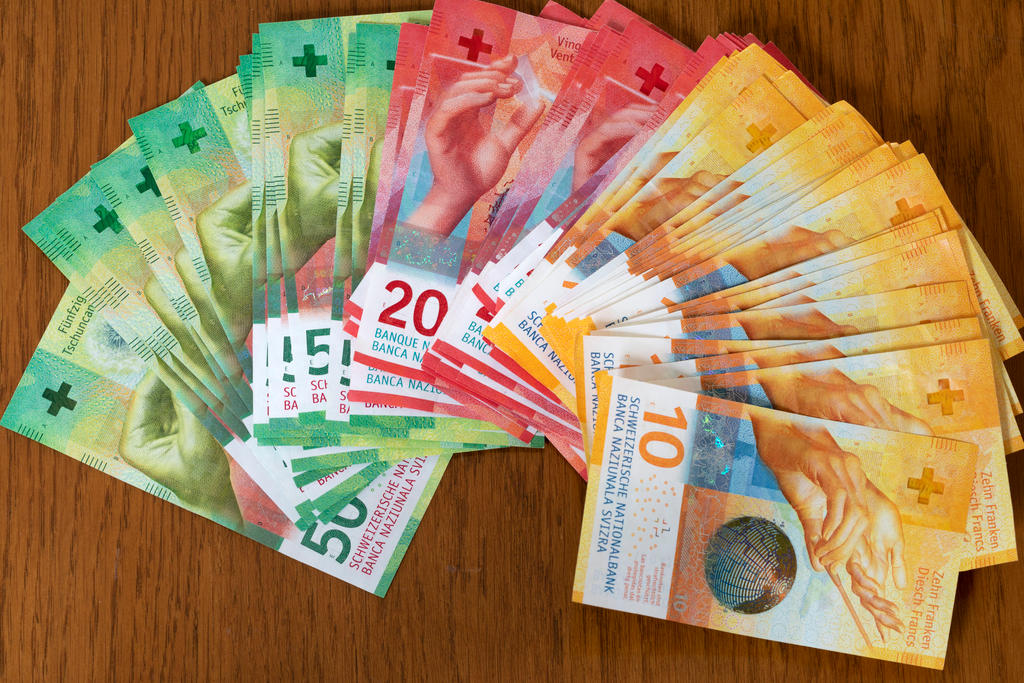
Switzerland’s continuing love affair with cash

Seventy percent of Swiss payments are made with cash, according to a central bank survey that lends weight to the assertion that “cash is king” in Switzerland.
Cash is used a lot in Switzerland. Respondents to a Swiss National Bank (SNB) payments survey believe it is more widely accepted, user-friendly, speedier and more cost efficient than any other payment method. Nine out of 10 think Swiss banknotes are forgery-proof.
As cash tends to be used mainly for smaller transactions it makes up less than half the total value of all payments (see graph below). Some 55% of the payment value is eaten up by debit and credit cards, and to a lesser extent e-banking, post office, internet payment and app transactions.

The second figure might be higher if high street shoppers were not so resistant to newer forms of payment services. Hardly any of the respondents used payments apps, such as Twint, while two-thirds said they either do not make use of the contactless payment function on their debit or credit cards, or would not consider this option even if it was available.
But they are still in love with high denomination notes. At the end of 2017, there were 50 million CHF1,000 notes in circulation. The European Central Bank has stopped producing €500 notes for fear that they were being used for criminal purposes.
The SNB asked respondents to its survey how they used the CHF1,000 note. It found that older people still liked it to make payments at the post office and that 35% of expensive items are paid for with cash.

More
Why the Swiss like cash
Cash-centric countries
For its payment methods report, the SNB asked 1,968 people to keep a diary of their spending habits over a week-long period. Some 22,689 transactions were recorded with a value of CHF919,305.60.
The survey only accounts for one-off spending in shops, petrol stations, restaurants and the like. People are more likely to use e-banking and other non-cash methods for fixed monthly payments such as rent and household bills.
The SNB gives a qualified statement that Swiss spending methods are in line with the European average. The qualification is two-fold: its survey cannot be directly compared to those in other European countries and that there is no such thing as a Europe-wide “average”. Germanic and southern European spenders are more cash-centric – and therefore closer to the Swiss – than those in France or the Nordics.

In compliance with the JTI standards
More: SWI swissinfo.ch certified by the Journalism Trust Initiative
































You can find an overview of ongoing debates with our journalists here . Please join us!
If you want to start a conversation about a topic raised in this article or want to report factual errors, email us at english@swissinfo.ch.